UK devolution: What's next for Wales?
- Published
Wales First Minister Carwyn Jones: "I'd like to see a devolution settlement that's clearer"
Links with England's northern cities are valued over those with Swansea and Cardiff by some people in north Wales. Is that a problem for a country keen to take on further powers from Westminster?
Within the grey slate walls of the Welsh assembly in Cardiff Bay, the main Welsh parties are keen to come to a consensus on devolution, believing the country's message will be stronger if it talks as "one voice".
Appetite for independence is low in Wales, but polls suggest support for further powers stands at 49%. There isn't a consensus on what powers parties want, but First Minister Carwyn Jones said discussions about Wales' future powers should be completed by January.
However, get on a train heading north out of Cardiff Central on a railway track that weaves its way in and out of Wales, into England and back again, and opinion on what kind of relationship Wales wants with England - and the rest of the UK - is still very much divided.
It is not immediately clear how many passengers on board coach B on the 13:21 to Holyhead will make the entire (almost) five hour journey to the north-west tip of Wales.
Some will probably continue on to Ireland. Daily ferries run from Holyhead to Dublin, so the track is a well-trodden route for tourists.
But many are commuters who regularly make the journey for work.

What powers does Wales already have?
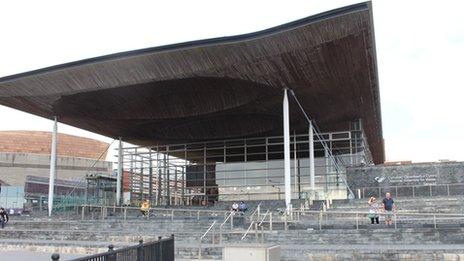
The Welsh assembly was set up after a referendum in 1997
The Welsh assembly was set up in 1999
Its powers include, external control over education, health and local government
In 2011, the nation gave a resounding "Yes" in a referendum on direct law-making powers for the assembly
Two reports on the future of devolution by the Silk Commission have recommended devolving youth justice and policing, large-scale energy projects and new tax and borrowing powers
A Wales Bill, external - which devolves limited tax-raising powers and paves the way for a referendum on devolving income tax - is before Parliament

Chris Tidswell, head of the Chartered Institute of Public Finance and Accountancy Wales, frequently commutes to Cardiff and back from his home in Chester.
He probably has more reason to keep a close eye on Welsh governance than the average passenger because of his job and believes it is "more important than ever that maximum value is generated from every pound of public money spent in Wales".
CIPFA's position on any further devolution is that "it's imperative it does not stop at Cardiff", with powers allowed to flow to local levels. However, structural change in isolation is not the answer, Mr Tidswell says. Public services need "new and innovative approaches" and a cultural change.
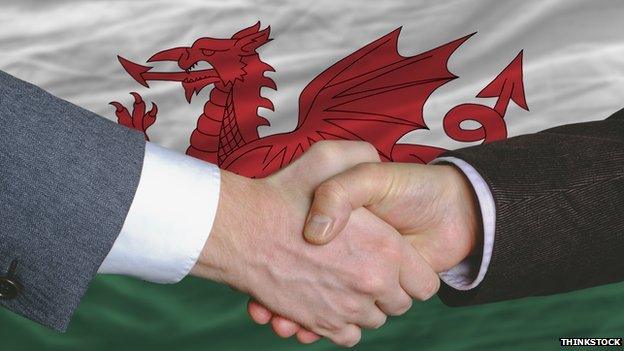
First Minister Carwyn Jones wants discussions about Wales' future powers completed by January
Approaching the English town of Ludlow, roughly halfway along the north-south running Welsh border, retail manager Gemma Henley, 40, who lives in mid-Wales, agrees.
"The whole system of governance in England and Wales is antiquated. We need to move on, to look at power structures in other countries and US states and do something radical if it's going to make any difference.
"I'd like to see something like what happens with jury service - new people bringing fresh approaches, rather than career politicians," she says.
But Ms Henley believes talk of devolution to Wales is missing the point.
"What do people in Cardiff know about mid-Wales or north Wales? If we are talking about more local powers, wouldn't people in north-east Wales want to go in with Liverpool or Manchester? Most people I know from there are conscious they speak with a Liverpudlian accent," she says.
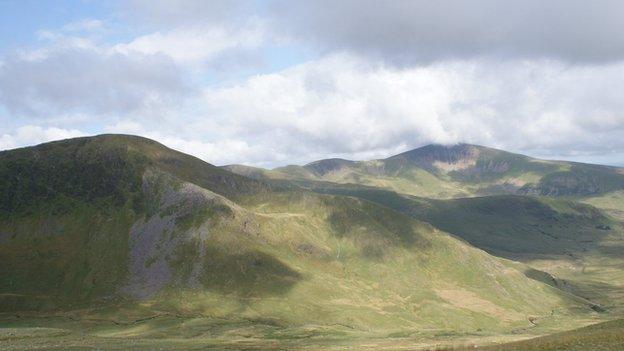
Wales boasts some of most picturesque views and mountains in the UK
As the train carves its way through valleys and characterful villages, speeding past long stretches of hilly landscape, it's easy to see her point.
Commuters can be in Liverpool or Manchester within an hour by train from Wrexham General, the busiest railway station in north Wales in terms of passenger numbers. A train to Cardiff takes about three.
London is also more accessible by train from Chester - another hub for commuters just over the English border on the same line - than Cardiff.
So are people in north-east Wales more opposed to Welsh devolution - and might they prefer to band together with parts of England than Wales?
Prof Roger Scully, of the Wales Governance Centre at Cardiff University, doesn't think so. He says there is some resentment about Welsh governance being too Cardiff-centric in north Wales, and there tends to be some difference in attitudes along east-west lines, but less than might be expected.
"Looking at a map of the 2011 referendum, in the north east over 60% of people in Flintshire voted 'Yes' to more Welsh powers, and almost 65% in Wrexham did. Monmouth [further south] voted 'No'," he says.
There's also been a fall in regional attitudes to devolution across Wales, he adds. Sentiments are much more sporadic than that.
At Flint, there are certainly some passengers that feel north Wales gets a raw deal from the Welsh assembly. But many think devolution within Wales, rather than closer links with England, is the answer.
"I favour more devolution from Cardiff. There are different issues up here - it's much more rural, jobs are scare, it's difficult to persuade industry to come here," says local government officer Gareth Jones, from Llanberis, a village in Gwynedd.
But that doesn't mean he wants Wales to be broken into smaller units.
Conversely, he wants the country - which has historically invested more transport links along east-west lines than north-south lines - to come closer together. "The A470 artery south has improved, but more needs to be done," he says.
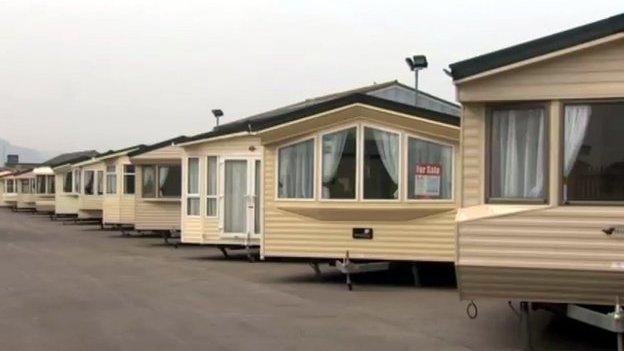
As the train travels past caravan park after caravan park along the coast of north-west Wales - where most people's first language is Welsh - Colette Redfern, from Llanfairpwllgwyngyll, Anglesey, doesn't think what powers the Welsh assembly has has anything to do with her passionate Welsh identity.
"I speak Welsh, I feel Welsh, I'll always put Wales first. But I don't think Wales should be independent or have more powers - it would make me concerned," she says.
Another Welsh woman in her 30s who doesn't want to be named wants to stop devolution talks in their tracks.
"I don't think Wales can cope with any more powers - we're not bullish like the Scots. Of course we like our free prescriptions, but we're one island and should stick together," she says.
It seems Wales still has some way to go in terms of coming to a consensus on what happens next.
- Published3 November 2014
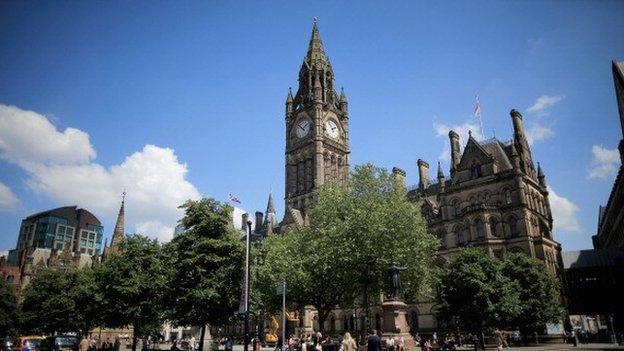
- Published4 November 2014
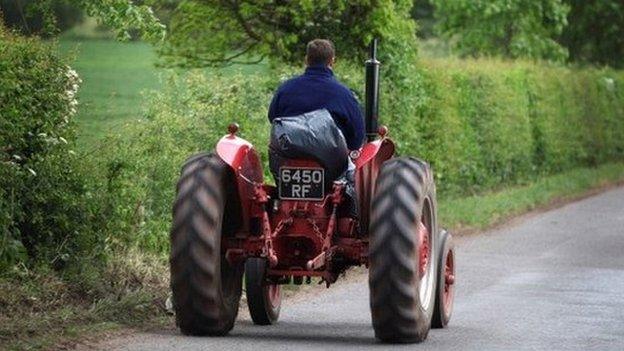
- Published3 November 2014